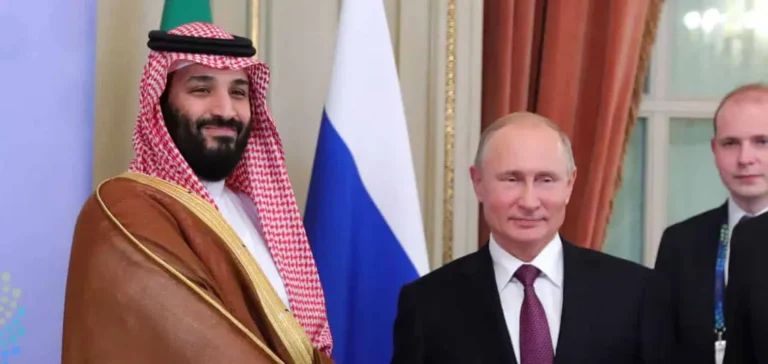Bilateral trade between Russia and Saudi Arabia increased significantly in 2024, reaching a total exceeding USD 3.8 billion, representing an annual growth of more than 60%, according to Russian Minister of Industry and Trade Anton Alikhanov. These remarks were made during the “Industrial Dialogue: Russia-Saudi Arabia” forum held at the Innoprom-2025 trade fair.
Trade acceleration in early 2025
Anton Alikhanov specified that this positive dynamic further strengthened at the beginning of 2025, with trade volumes quadrupling in the first quarter compared to the same period in 2024. To sustain this upward trajectory, the two countries are now seeking to jointly develop projects in several key sectors. Shipbuilding, metallurgy, and pharmaceuticals are among the areas identified by the Russian minister.
Joint industrial development
As part of this industrial cooperation strategy, Russia highlighted a national project focused on the production of machine tools, automation, and robotization of industrial processes. Minister Alikhanov emphasised his country’s strong commitment to the digital transformation of the industrial sector as well as the implementation of flexible and autonomous production systems. “In these areas, we possess proven technical expertise, mature technologies, and concrete projects that can be executed in cooperation with our Saudi partners,” he stated.
Collaboration in hydrocarbons and mining
In the hydrocarbons sector, Russia has for several years established the Institute of Oil and Gas Technology Initiatives, an organisation dedicated to collaborating with foreign oil companies. The Russian minister expressed a desire for Saudi partners to become involved in developing new industrial standards, distinct from those set by the American Petroleum Institute (API).
There is also significant partnership potential in the mining sector, according to Anton Alikhanov. Russia would thus be able to supply Saudi Arabia with specialised equipment for mineral extraction and processing. “We have proven technologies capable of meeting the needs of our Saudi partners in the mining industry,” he affirmed.






















